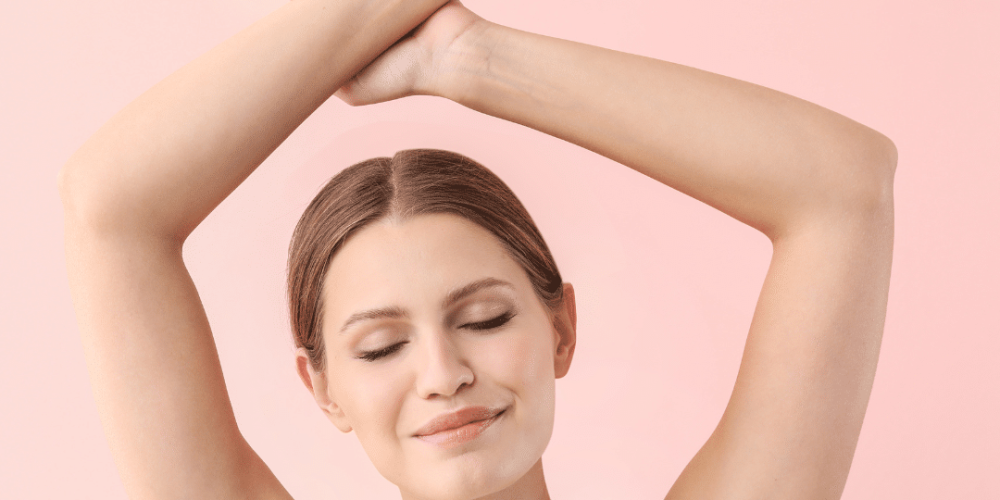November is National Healthy Skin Month, a time to focus on keeping our skin healthy and looking its best. Our skin is the largest organ in our body, and it plays a vital role in protecting us from the elements, regulating our body temperature, and helping us sense the world around us.
Seven Tips From The American Academy of Dermatology:
- Reduce wrinkles. When it comes to wrinkles, sun damage and age are big culprits, but sleeping on your side or stomach may contribute to ‘sleep lines’ on your face and chest. If you can, sleep on your back. It’s a simple step that can reduce or prevent the formation of these lines. – Courtesy of Kesha Buster, MD, FAAD
- Remove makeup while hydrating your eyelids. Petroleum jelly is an effective way to remove your eye makeup and rehydrate eyelid skin. To remove makeup, apply a thin coat of petroleum jelly and gently wipe it off with a tissue or cloth. Then gently spread any remaining jelly onto your eyelids, which will rehydrate your skin overnight. – Courtesy of Roopal Kundu, MD, FAAD
- Minimize irritated skin when you start using a retinoid. When you first start using a retinoid, your skin can become excessively irritated and dry. To minimize these effects, try using the retinoid two to three times a week for a couple of weeks or so. If you don’t see any excessive irritation, then you can apply the product more often. Dermatologists caution that you need to introduce your skin to retinoids slowly because they can irritate your skin if you haven’t developed a tolerance to them. – Courtesy of: Paul S. Yamauchi, MD, PhD, FAAD
- Lessen irritation caused by a retinoid. Before you apply a retinoid to your face, dab a small amount of petroleum jelly or a hydrating moisturizer under your eyes, to the outer edges of your nose, and to the corners of your mouth as shown below. – Courtesy of Marjon Vatanchi, MD, FAAD
- Relieve dry hands and brittle nails. Have your hands and nails become very dry from repeated washing and using hand sanitizers? Apply an ointment like petroleum jelly to your hands, nails, and cuticles after every handwashing. This can prevent dryness and brittle nails. – Courtesy of Hassan I. Galadari, MD, FAAD
- Prevent nail fungus. Both athlete’s foot and sweating increase your risk of developing nail fungus, which can cause nails to thicken, lift, and turn yellow. Keeping your feet dry and treating athlete’s foot promptly may prevent these nail changes. – Courtesy of: Shari R. Lipner, MD, PhD, FAAD
- Have healthier hair. Getting your hair cut on a regular basis will make it healthier because cutting removes hair that would split. However, frequent haircuts will not make your hair grow faster. Hair growth occurs beneath the skin, so cutting it doesn’t affect how quickly hair grows. – Courtesy of: Rochelle R. Torgerson, MD, Ph.D., FAAD
In addition to the above tips, there are a few other things that you can do to keep your skin healthy, depending on your individual needs. For example, if you have acne-prone skin, you may want to use a cleanser and moisturizer that are specifically designed for acne-prone skin. If you have dry skin, you may want to use a heavier moisturizer. And if you have sensitive skin, you may want to avoid using products that contain harsh fragrances or chemicals.
General Facts About Skin
- Skin is the largest organ in the body. It covers an area of about 20 square feet and weighs about 6 pounds.
- Skin is made up of three layers: the epidermis, the dermis, and the subcutaneous tissue.
- The epidermis is the outer layer of skin. It is made up of dead skin cells that are constantly shed and replaced.
- The dermis is the middle layer of skin. It contains blood vessels, nerves, sweat, and oil glands.
- The subcutaneous tissue is the inner layer of skin. It is made up of fat and connective tissue.
Skin has a number of important functions, including:
- Protecting the body from the elements, such as the sun, wind, and rain.
- Regulating body temperature.
- Helping the body to sense the world around us, such as touch, pain, and temperature.
- Preventing infection.
- Producing vitamin D.
Skin is the body’s largest organ and it plays a vital role in protecting us from the elements, regulating our body temperature, and helping us to sense the world around us. By following the tips above, you can help to keep your skin healthy and looking its best.
In addition to the tips above, there are a few other things that you can do to keep your skin healthy:
- Get enough sleep. When you don’t get enough sleep, your skin can become dull and dry. Aim for 7-8 hours of sleep per night.
- Manage stress. Stress can trigger skin problems such as acne and eczema. Find healthy ways to manage stress, such as exercise, yoga, or meditation.
- Avoid smoking. Smoking damages the skin and makes it more prone to wrinkles, fine lines, and other signs of aging.
If you have any concerns about your skin health, schedule an appointment with a SkinMD provider online or by calling our office. Our providers can help you develop a personalized skincare routine that is right for you. Remember, your skin is a precious asset. By taking care of it, you can help to keep it healthy and look your best.



